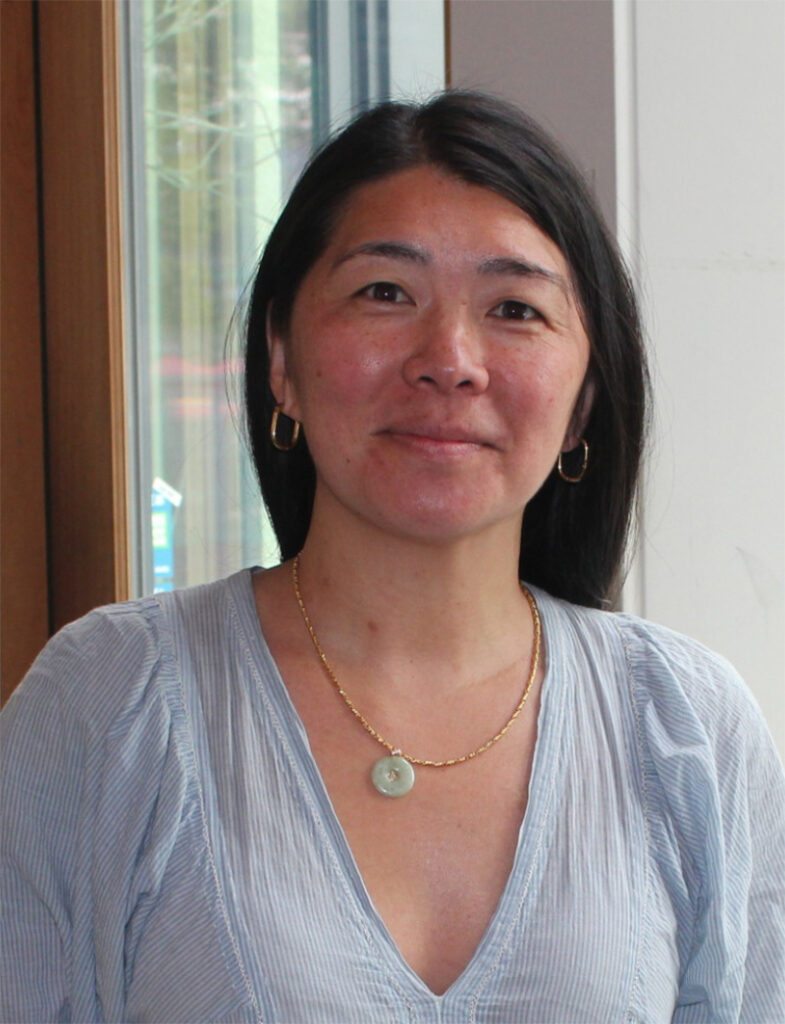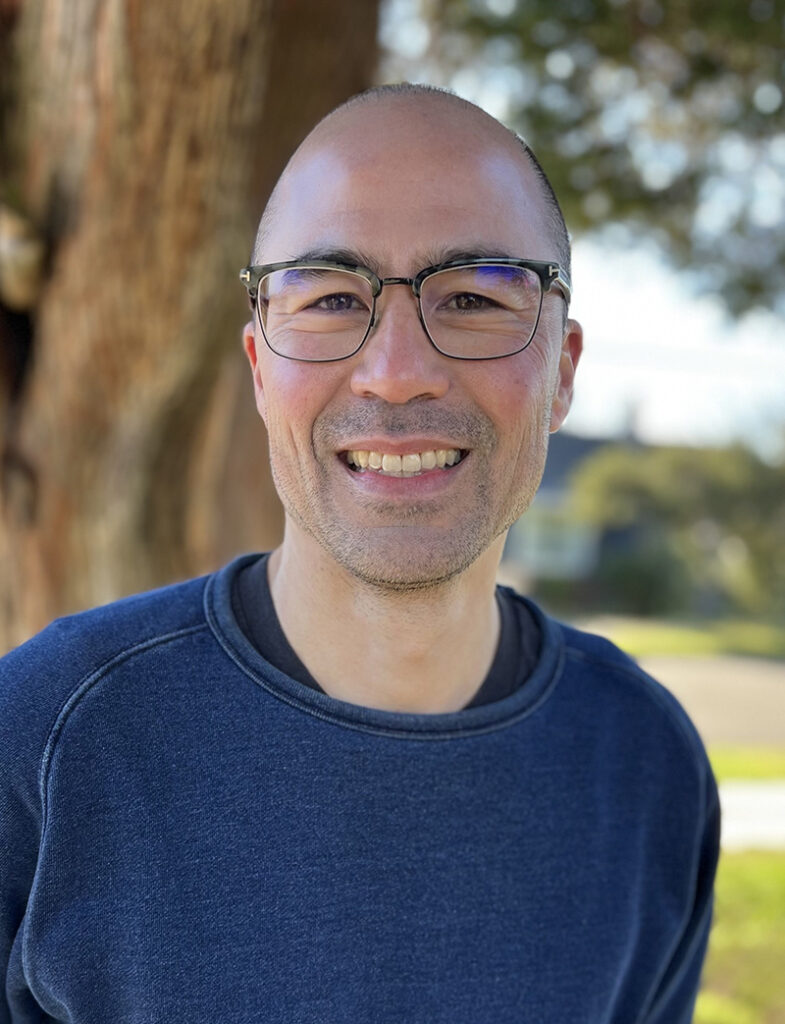By James Tabafunda
NORTHWEST ASIAN WEEKLY
Four candidates are competing to represent Seattle’s District 2 on the City Council in a special election this November, following the January resignation of Councilmember Tammy Morales. The winner will serve the remaining two years of Morales’ four-year term. A primary is scheduled for August.
The diverse field includes former Director of Community Engagement at Northwest Harvest Jeanie Chunn, who joined the race last month, and Eddie Lin, who serves as an attorney in the Seattle City Attorney’s Office assigned to work with the Office of Housing.
District 2 (southeast Seattle, including Beacon Hill, Rainier Valley, Columbia City, Mount Baker, Yesler Terrace, Rainier Beach, and the Chinatown-International District) is one of the city’s most challenged and dynamic districts. It faces major issues of affordable housing, public safety, and economic opportunity.
Jeanie Chunn

Jeanie Chunn
Chunn’s journey to the 2025 Seattle City Council race is rooted in decades of activism, community organizing, and a familiar personal story. As the daughter of Chinese immigrants, Chunn grew up in Erie, Pennsylvania, one of only a few Asian families in a working-class city. “I always felt in a liminal space—not quite Chinese enough, not white,” she recalls. This early experience of navigating identity and belonging would later inspire her commitment to building inclusive, systemic change in Seattle.
Chunn’s professional life is a testament to her advocacy for small businesses and workers. During the COVID-19 pandemic, she co-founded Seattle Restaurants United, a coalition that helped over 250 local restaurants survive by designing and implementing city policy changes, capping delivery fees, and distributing vital information in multiple languages. “We made sure mom-and-pop restaurants weren’t left behind,” Chunn says. Her activism extended nationally as co-chair of the Independent Restaurant Coalition, where she helped pass legislation that delivered $28.6 billion in direct relief to independent restaurants and bars across the country.
Locally, as director of community engagement at Northwest Harvest, she worked to address food insecurity and systemic poverty, advocating for expanded food access programs like Fresh Bucks and universal basic income.
Chunn’s vision for Seattle holds the city accountable for following through on its values of compassion and equity—not just talking about them. She opposes city policies that “sweep” homeless residents, arguing that such actions waste resources and erode trust. “A fully housed city benefits us all,” she said, pledging to fund and protect social housing initiatives and to end encampment sweeps. On public safety, she calls for evidence-based approaches, such as expanding the city’s Community Assisted Response and Engagement department to address behavioral health crises, allowing police to focus on crime investigation.
Labor rights are central to Chunn’s platform. She pledges to propose new policies to combat wage theft, ensure prevailing wage laws, and require Labor Harmony Agreements on public infrastructure projects. “Corporations count on us not holding them accountable,” she says, emphasizing the need for the city government to protect workers’ rights, especially immigrants and low-wage earners.
Her approach to policy making is shaped by her years on the Seattle Labor Standards Advisory Commission and the Seattle School Meals & Food Education Working Group. “Community voices are essential,” she says. “The people closest to the issues have the best solutions.” She stresses the importance of building consensus, bringing together government agencies, community organizations, and residents to tackle Seattle’s biggest problems.
Housing and transportation equity are top priorities. Chunn advocates for increased density around transit hubs, mixed-income developments, and streamlined permitting to accelerate construction. She also calls for traffic calming measures and improved bike infrastructure, especially in underserved areas like Rainier Beach.
Her campaign is notable for its accessibility. She promises to hold informal meetings in mutually convenient locations such as neighborhood cafes, making herself available to constituents who work full-time and cannot attend City Hall meetings. “We need to be rooted in community, not just downtown,” she said.
Chunn’s personal story—raising a daughter as a single mother and working in restaurants—brings empathy to her activism and the policies she supports. “I think of how it will impact our neighbors,” Chunn says. “That’s what real community leadership looks like.”
“They need to know that they are always centered in my mind. Whenever I’m going to make a decision, I’m going to think of them and the impacts, policies, and decisions that I vote on.”
Eddie Lin

Eddie Lin
Lin, the son of a Taiwanese immigrant father and a white mother from Massachusetts, brings a personal history shaped by the complexities of public service, race, and identity—a perspective he believes is vital for a district as diverse as District 2.
“For me growing up, I never had representation,” Lin recalls. “I had my dad, and that was it. I was a little ashamed of that, growing up. I don’t want anyone to be ashamed of their background.”
A longtime Beacon Hill resident, Lin grew up in Durham, North Carolina, “a good place to grow up,” he said. “But on the other hand, I didn’t learn about Chinese culture or history there because there just wasn’t a community there that I was connected with.”
This lack of representation influenced his current commitment to empowering District 2 residents to have a direct voice at City Hall.
After attending Macalester College in Minnesota, he moved to Seattle in 1998, later earning his law degree from Seattle University.
For Lin, housing affordability is the defining issue facing District 2. With years of experience as an assistant city attorney specializing in housing, Lin has seen firsthand how rising rents and limited housing supply drive displacement and homelessness, disproportionately affecting communities of color.
He supports specific reforms: updating the city’s Comprehensive Plan to allow greater density, streamlining permitting, and eliminating outdated zoning restrictions that limit most of Seattle into single-family housing. He advocates for expanding affordable homeownership opportunities, particularly for Black and Asian American families, and supports the city’s Mandatory Housing Affordability program.
“We need to just build a lot more of all types of housing—market rate, subsidized, social housing—and to help get those costs down,” he said.
Lin also supports renter protections, including the new state rent stabilization law, and wants to see expanded rental assistance funded by progressive taxes. His approach is comprehensive: “We need both strong protections for renters and increased supply to reduce costs and prevent displacement.”
District 2 deals with its share of Seattle’s homelessness crisis, with encampments and shelter shortages being a daily reality. Lin argues that the city’s reliance on encampment sweeps has failed, with homelessness rising more than 25% in the past two years despite record spending. He calls for a significant expansion of shelter capacity, including tiny home villages and transitional housing, and emphasizes the need for regional cooperation—pointing to his own work helping to create the King County Regional Homelessness Authority.
“We absolutely need a regional approach. Seattle can’t solve this on its own,” Lin said, urging state lawmakers to require all districts to provide housing and services for residents in need.
Gun violence, especially among youth, continues to be a concern in District 2, which has the highest rates of gun incidents in Seattle. He advocates for shifting resources toward prevention and community-based intervention, supporting organizations like Community Passageways and Urban Family. He is critical of proposals to use new levy funds for police salaries, arguing that investments should prioritize programs with deep roots in the community.
Lin also calls for reforming the criminal justice system, expanding diversion and rehabilitation programs, and increasing civilian oversight of police misconduct investigations to rebuild trust between law enforcement and residents.
His vision for the district includes safer streets—adding raised crosswalks and investing in both connected bike lanes and reliable transit. He links transportation policy to environmental justice, noting that life expectancy in parts of the district is up to a decade shorter than in wealthier neighborhoods due to pollution and traffic.
On economic policy, Lin advocates for progressive taxation. He supports increasing the JumpStart payroll tax, implementing a local capital gains tax, and expanding property tax relief for seniors and low-income residents. “We can’t shore up our budget by taxing our lowest income, our fixed income seniors, our minimum wage workers,” he said.
His campaign operates with the belief that effective leadership starts with listening. “My favorite part of the job is to listen to my clients and really kind of understand where they’re coming from and their problems and goals,” he says. “I want to reach out to all communities.”
As District 2 voters weigh their choices, both candidates offer a combination of lived experience, professional expertise, and a vision for a more affordable, equitable, and inclusive Seattle.
For more information on Jeanie Chunn, go to votejeanie.com.
For more information on Eddie Lin, go to linforseattle.com.
